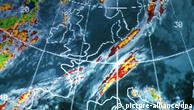| ||||||||
A destination on the Interweb to brighten your day (now get back to work!)
Thursday, December 27, 2012
Top Stories from the last 24 hours
From the Heart of Europe | 28.12.2012, 01:15 UTC
| If you cannot view this message correctly, please click here. |
How I Learned to Rely on My Own Memory (and Stop Depending on Technology)

December 27th, 2012Top StoryHow I Learned to Rely on My Own Memory (and Stop Depending on Technology)
We talk a lot about to-do lists, and notes, but relying on moving your memory elsewhere means you spend a lot of time managing your notes instead of actually getting things done. They can be fantastic tools to help you remember things, but they can also be a burden. For me, the big motivator was that I found myself pushing ideas onto paper, then immediately forgetting about them. They weren't stewing and working to become better, they were stagnant and sitting in an unkempt state on my hard drive. So, I decided to take Jeff Atwood's challenge:
I decided to take Atwood's challenge a step further. So, for the last month I haven't written down anything to remember it. I haven't looked on Google Maps to get the exact address of a restaurant, I haven't jotted down a quick note to remember an idea. I didn't use shopping lists, to-do lists, or schedules. I even stopped looking up trivia facts on my phone. I wanted to see how much I could force myself to remember. In the end, I was able to remember a lot more than I thought possible. I remembered locations, lists, names, and even a complicated holiday schedule. Here's how to make sure you remember everything without those tools. Practice Makes Perfect
I deleted every app from my computer and phone I might use. I got rid of to-do lists, notes apps, my calendar, Google Maps, and anything else I might be tempted to write in. For everything that couldn't be deleted, I just told myself I couldn't write things down or look up information while I was out and about (obviously I still had to research and double-check things for work). How I Embedded Lists In My Memory
Instead of merely writing out a list of what I have to do throughout the day, I turn it into a story. For example, here's what a (shortened) to-do list for an average day might look like: four posts for Lifehacker, email grandma, get new tires, and cook lunch for tomorrow. Instead of putting all that into an app, I just mentally walk through the day: I wake up and bust out my four posts for Lifehacker. When I finish up, I email grandma a quick thank you note before heading out and dropping off my truck to get new tires. When I get home, I cook up dinner and then store everything for lunch tomorrow. I did the same for everything else in a list format that needed my attention for the day. For shopping lists I mentally walked through the store in my brain and picked up what I needed. Scheduling things, I did the same thing. It took a few days to really get into the habit of this, and it was taxing to try and remember the non-recurring items (grab zip-loc bags at the store, pick up the dog's medications). Eventually, it all settled into place and a quick runthrough of my day each morning was enough that I didn't need to resort to apps or paper. The reason this works is pretty simple. It essentially uses pattern recognition and "chunking" to create a web of information that's tied together instead of a series of random things. When we link items together, we have a better chance of remembering them, and making a micro-story does just that. Another trick is the memory palace, a technique that our own Melanie Pinola found useful for remembering random bits of information. The basic premise is simple: for each bit of information you need to remember, peg that information to a location in an imaginary home with an additional piece of weird information. For example, if you need to remember a grocery list, you can peg that information like: yellow bananas in a monkey's hand on the porch, kiwi on a keychain in the foyer, an overweight Chewbacca eating sausage on the sofa, and so on. With just a little effort I was able to train myself to remember my lists. Typically these weren't longer than 20 or 30 items at the most, but it gave me the assurance that I could live without lists if I wanted. How I Memorized Dates, Facts, and Other Random Information
For all of these more random bits of information, I combined bizarre visual images with the information. In my case, this usually meant lurid images combined with mundane details. For (a tame) example: Bryan and Jen's wedding is on August 24, the day Augustus spent 24 hours eating and puking cake non-stop. I will not forget that image, and every piece of information I need is right there, August, cake, and 24. I did the same thing for other random details, including names (Betsy Sheff, like Betsy Ross the Chef who cooked the flag), and facts (William Taft on his sweet sixteen in a bathtub cursing corporations for the 16th Amendment). Addresses were a lot easier. Instead of combining random bits of information I took the time to stop and look at the signs at the cross streets. The visual memory of the sign itself (not the physical address) was enough to help me remember. When I got an address wrong by a few blocks, I learned the right one pretty quickly as I navigated the city again. It turns out that getting lost is a pretty good way to remember where you want to go. These techniques didn't always work, of course. I'd occasionally have to ask again ("You said August 24, right?"), or on some occasions the memory was just lost completely. Once, I had to ask several friends to get the name of a person I was talking to because I had no idea what her name was or why she knew me. But over time, I got better at remembering to remember. For me, that's the crux of this experiment. When I actually pay attention and try to remember, I'm considerably more likely to remember something. I've had to rewire my brain away from the, "Oh, I can just look that up later," or "I'll put it in my calendar" mentality, and actually pay attention to what's going on. Photo by Marcin Wichary. Replacing My Notes with Fully Fleshed Out Ideas
I came up with two solutions. The first was to take single line ideas and combine them with bizarre visual images or mnemonics, just like remembering facts or names (Make Parking Better by Barking Letters). This worked great for when I was out in a car where I couldn't take a note anyway, or if I just needed to quickly remember an idea while working on something else. But when I had time to work through an idea, things changed considerably. My second approach was pretty simple: just start working. Instead of jotting down an idea for a post on Lifehacker, or whatever other project started in my head, I started work on it. For example, I had an idea for a writing and editing iOS app one day while watching a movie. Instead of jotting down the note, I started working out the interface and user experience. I didn't stop until it was done, and then I emailed the idea off to a friend who actually knows how to program. This was big for me. More often than not I come up with a problem I want to solve, and then leave it sitting there on a notepad. This forced me to start dealing with it right away. I had to pay attention to the idea and immediately start working through it actively. If I was out walking the dog and had a idea for a Lifehacker post, I started organizing and writing it in my head. If I was home playing video games I'd pause it and start typing. This cemented ideas in my head because they weren't just single lines, they were actual half-baked plans. How I'm Taking This Into the Real World
Ditching all the apps that help you remember doesn't exactly improve your memory—I still forget things like my bike lock when I walk out the door, or that I'm out of olive oil—it's more about teaching yourself how to remember. I feel like I've spent a lot less time dealing with to-do lists because, as Atwood points out, if it's not important, I'm not going to remember it. And I'm okay with that. As for other lists, I'll stick to my paperless method whenever I can. Shopping and daily to-dos seem easy enough, but remembering far off dates or details will still get relegated to a calendar or tasks app. The same goes for Google Maps. I'll continue to use to find a new place, but I won't rely on it for directions or addresses to places I've been before. Note taking, however, is something I'll certainly return to, but with a few new rules. I like just jotting down an idea and leaving it to stew for a while—especially if it's something that simply isn't usable right now (like a Valentine's Day post, or an idea for next Black Friday). However, if I have the time to instantly start working on something, I'm going to embrace that. It's far too easy to plop a potentially brilliant idea away in a note where it gets forgotten. Forcing yourself to immediately start work on it captures that eureka moment and extends it for a little longer. Photo by Dvortygirl. |
|
























